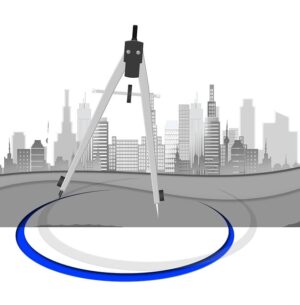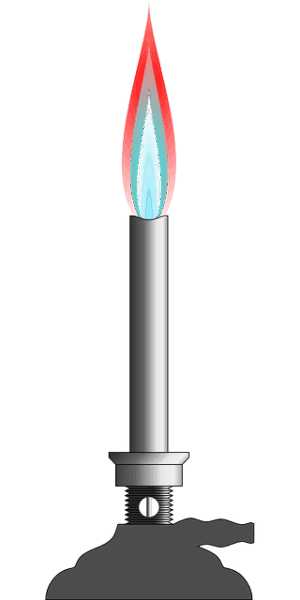Semantic Role Labeling (SRL) is a natural language processing technique enhancing understanding of complex equipment, particularly commercial air curtain heaters. By identifying entity roles and objectives within sentences, SRL streamlines procedure documentation, training, and technician matching. This method offers valuable insights for optimizing energy-efficient heating strategies in retail stores and industrial facilities, leveraging the advanced capabilities of air curtain technology. Strategic implementation of SRL involves integrating it into workflows, defining clear roles, providing training, and regularly updating labeling schemes to maximize efficiency, safety, and energy efficiency in commercial door heater maintenance.
Semantic Role Labeling (SRL) is a powerful natural language processing technique that enhances our understanding of text by identifying and categorizing the roles of entities within a sentence. In the context of commercial air curtain heaters, SRL plays a pivotal role in accurately matching service technicians with specific tasks. By labeling semantic roles, we ensure efficient dispatching of experts, leading to faster repairs and improved customer satisfaction for these specialized heating systems.
- Understanding Semantic Role Labeling (SRL)
- The Application of SRL in Identifying Technicians for Commercial Air Curtain Heaters
- Benefits and Challenges of Using SRL in This Context
- Best Practices for Implementing SRL in Technical Service Industries
Understanding Semantic Role Labeling (SRL)

Semantic Role Labeling (SRL) is a powerful natural language processing technique that aims to understand and interpret human language by identifying the roles played by different entities in a sentence. In the context of technicians servicing commercial air curtain heaters, SRL helps in pinpointing who does what and why, ensuring accurate identification of tasks. For instance, it can distinguish between the technician’s actions, such as inspecting the heater or installing parts, and their objectives, like maintaining optimal performance or ensuring energy efficiency.
This method is particularly beneficial for documenting and training procedures related to complex equipment like commercial air curtain heaters. By labeling roles, it becomes easier to communicate instructions clearly, especially when dealing with diverse door heating systems, industrial air barriers, or warehouse entrance heating applications. Moreover, SRL facilitates the extraction of valuable insights from textual data, potentially optimizing energy-efficient heating strategies for various environments, from retail stores to industrial facilities.
The Application of SRL in Identifying Technicians for Commercial Air Curtain Heaters

Semantic Role Labeling (SRL) is a powerful natural language processing technique that plays a pivotal role in accurately identifying and categorizing technicians specializing in commercial air curtain heaters. By meticulously analyzing text data, SRL can pinpoint key entities and their roles, such as the technician, the specific equipment they service (in this case, commercial air curtain heaters), and even the environmental contexts like warehouses or retail stores where these heaters are implemented.
This application of SRL is particularly beneficial for businesses in the heating and ventilation sector. It streamlines the process of matching skilled technicians with the appropriate commercial entrance heating needs. For instance, when a warehouse requires maintenance on its industrial air barriers or door heating systems, SRL can help identify experts who possess specialized knowledge in heated air curtains and energy-efficient heating solutions. Such precision ensures efficient service and optimal entrance climate control for various business environments.
Benefits and Challenges of Using SRL in This Context

Semantic Role Labeling (SRL) offers significant advantages in accurately identifying and categorizing roles within complex sentences, making it a valuable tool for various applications. In the context of commercial air curtain heaters, SRL can enhance our understanding of how technicians perform their tasks. For instance, when describing the installation process, SRL can label roles like “technician” (the agent performing the action), “heater unit” (the object being manipulated), and “commercial entrance” (the location where the task takes place). This level of detail is crucial for training purposes, ensuring that technicians follow standardized procedures and maintain consistent quality in their work.
Despite its benefits, using SRL in this specific domain presents certain challenges. The technical nature of commercial air curtain heaters and related processes may require a specialized vocabulary, necessitating extensive annotated datasets for effective training. Additionally, the dynamic environment where these heaters are installed, such as warehouses or retail stores, introduces variability that can impact consistency in data labeling. However, with careful consideration and tailored approaches, these challenges can be addressed, enabling SRL to contribute substantially to improving efficiency and safety in commercial entrance heating solutions, including door heating systems, warehouse entrance heating, and retail store heating applications, while promoting energy-efficient heating through advanced air curtain technology.
Best Practices for Implementing SRL in Technical Service Industries

Implementing Semantic Role Labeling (SRL) in technical service industries, particularly for commercial air curtain heaters, requires a strategic approach to ensure maximum efficiency and accuracy. Best practices include integrating SRL into existing workflows seamlessly, ensuring well-defined roles and responsibilities among team members, and providing comprehensive training on the system. Regular reviews and updates of labeling schemes are crucial to adapt to evolving technologies and terminologies in door heating systems.
For commercial entrance heating applications, such as warehouse entrance heating or retail store heating, SRL can streamline service processes by accurately identifying components and their functions within air curtain technology. This enables technicians to quickly diagnose issues with industrial air barriers and heated air curtains, enhancing the overall energy efficiency of the heating systems. By adopting these best practices, service providers can elevate the standard of care in maintaining commercial door heaters, ensuring optimal performance and longevity for various entrance climate control solutions.
Semantic Role Labeling (SRL) emerges as a powerful tool in accurately identifying technicians specializing in commercial air curtain heaters. By understanding and applying SRL, companies can streamline their service processes, enhance efficiency, and ensure the right expertise is matched with complex equipment like these heaters. Despite challenges, the benefits are significant, leading to best practices that emphasize data annotation, robust training sets, and continuous improvement. Embracing SRL in technical service industries, particularly for specialized equipment, promises a more precise and effective approach to meeting customer needs.






